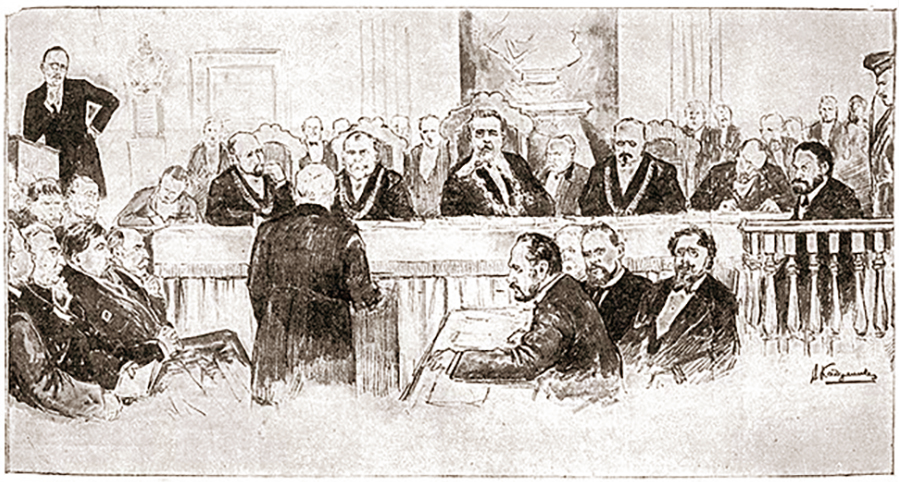On October 8, 1913, the trial of Mendel Beilis, a Jew accused of committing the "ritual murder" of an Orthodox boy, Andriy Yushchynsky, began in Kyiv.
On Saturday, March 20, 1911, twelve-year-old Andrew did not return home from the Sofia Theological Seminary. Soon his body with numerous stab wounds was found in a cave near the house.
The first version put forward by investigators was considered as potential killers of the boy's relatives. Andriy lived with his mother, stepfather and two brothers, born in a second marriage. Accordingly, the boy could be perceived as a burden for a poor family. However, this version was not confirmed: it turned out that the teenager had proper care, the family paid for his education at school.
The second version was first voiced by representatives of the Kyiv Black Hundred organization "Double-headed Eagle". They claimed that Andrew was killed by Jews as if to use the boy's blood to make matzah (ritual bread made from flour and water) for the Jewish holiday of Passover. Menachem Mendel Beilis, a 37-year-old clerk of a brick factory and the father of five children, was charged with the crime. In July 1911 he was arrested.
This version was supported by Russian official circles, as it allowed to convince the society of the need to further restrict the rights of Jews. It will be recalled that they were not full citizens of the Russian Empire - the right to freely choose a place of residence was restricted, there was a discriminatory interest rate for admission to educational institutions, Jews could not freely buy and sell land, hold public office, etc.). An anti-Semitic campaign has begun in the official press, which has picked up on this version. However, she met with strong opposition from society. Mass protests took place in Kharkiv and Odesa; writers Volodymyr Korolenko and Maksym Gorky set up a public committee to defend M. Beilis. The organization issued a statement against incitement to anti-Semitism, signed by 83 cultural figures. Writers Oleksandr Blok, Oleksandr Kuprin, scientists Volodymyr Vernadsky, Mykhailo Hrushevsky, Serhiy Yefremov, Sofiya Rusova, priest Oleksei Glagolev and others opposed the falsification of the case.
The third, most substantiated version of the investigation is "bandit murder". It was based on the fact of acquaintance and friendship of the victim with the son of Vera Cheberyak - a resident of Podil, who was engaged in the sale of stolen goods. De facto, her house was a thief's den. On the eve of the murder, Andrew quarreled with Vira Cheberyak's son and threatened to extradite the latter's mother. As a result, criminals, concerned about the possibility of exposure, decided to kill the boy. Investigator Mykola Krasovsky, who supported the "bandit" version from the very beginning, was removed from the investigation, as this version undermined the political involvement of the case.
Only two and a half years after the arrest of M. Beilis, his case was sent to court. The jury was deliberately made up of peasants who could not boast a high level of education and, logically, the prosecution had to believe in the existence of "Jewish bloody rituals" and, accordingly, the guilt of Beilis. However, the jury acquitted him.
Despite the fact that thousands of people welcomed the fair verdict of the court, M. Baileys received numerous anonymous threats. So the family decided to leave the Russian Empire. In 1914, Beilis went to Palestine, and later moved to the United States. There Mendel wrote a memoir, The Story of My Suffering. He died in 1934 and was buried in New York.
Sources:
- The Baylis Case: A three-volume transcript. Kiev. 1913
- Baylis Menachem Mendel // Brief Jewish Encyclopedia. V. 1. Jerusalem, 1976.
P. 317–318. - To the 100th anniversary of the Menachem Mendel Baylis Case. (September 23 - October 28, 1913).
Materials. Research.

